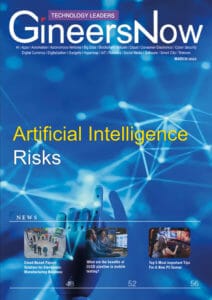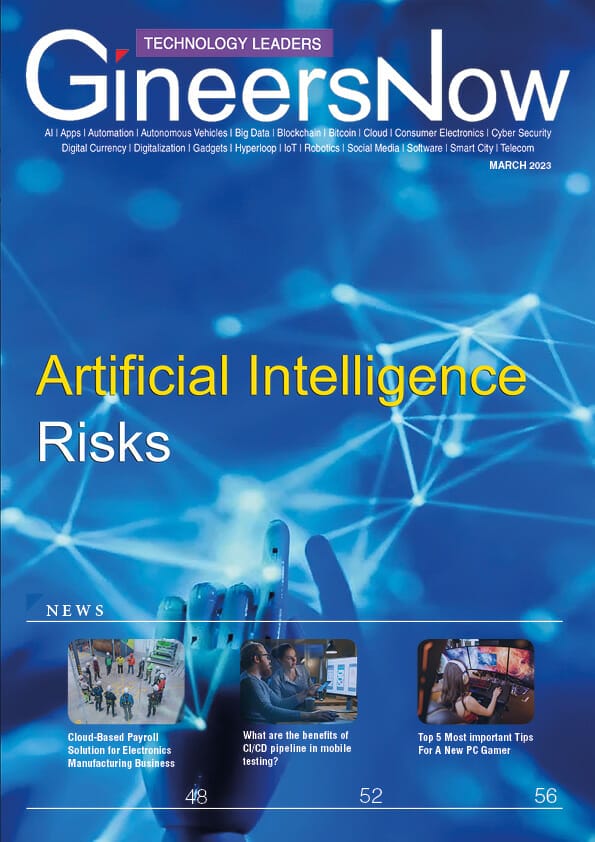Today, Artificial Intelligence (AI) is being used in various applications and industries. While the potential for AI to revolutionize our society is immense such as the ChaptGPT, there are also risks and disadvantages associated with its use. This article will provide an overview of these risks and disadvantages to help readers better understand the implications of implementing AI within their own organizations or projects. We will explore various scenarios where AI can be damaging and present strategies to mitigate these negative effects.
Artificial Intelligence
In recent years, Artificial Intelligence (AI) has become a hot topic in technology and innovation. AI refers to the ability of machines to mimic human intelligence and perform tasks such as logical reasoning and decision-making. Despite AI’s potential benefits, several drawbacks are associated with its use.
One of the major disadvantages of AI is its lack of creativity. Machines cannot think outside the box or develop novel solutions to problems; they rely solely on pre-programmed algorithms, which can lead to inflexible outcomes. Additionally, an algorithm may be biased towards certain information or data sets if it’s not programmed correctly, potentially resulting in unfair decisions being made.
Another disadvantage is that implementing AI systems can be expensive and time-consuming due to their complexity.
Definition of AI
Artificial Intelligence (AI) is a rapidly advancing technology that has been providing tremendous benefits to society. However, it also carries a few disadvantages. AI is the ability of a computer or machine to think, learn, and make decisions to complete tasks – just like humans do. It can be used for many different applications, including robotics, natural language processing, facial recognition technology, and machine learning algorithms.
The advantages of AI are numerous, from diagnosing better medical conditions, faster sorting of large amounts of data, and more accurate forecasting and prediction models for various industries. However, some potential drawbacks include increased automation leading to job losses and having our personal information stored in databases that malicious actors can access. Additionally, some people have raised ethical questions regarding AI’s dependence on programmed rules which could lead to unwanted bias or discrimination against certain groups in society.
The Risks of AI
The rise of artificial intelligence (AI) has been praised for its potential to revolutionize many aspects of life. From healthcare to transportation, AI is being developed and integrated into existing systems faster than ever before. While the benefits are clear, it’s important to be aware of some potential risks of this powerful technology.
AI systems can learn from past experiences and can quickly become more efficient in their operations; however, this same capability also carries a certain amount of risk as errors in these systems could go undetected or unnoticed for extended periods of time without proper oversight. Additionally, AI algorithms are not always able to interpret data accurately or make decisions that align with human expectations, which can lead to significant problems if they are used in critical decision-making roles such as medical diagnostics or autonomous vehicle navigation.
AI Unpredictable Results
Artificial intelligence (AI) is a technology used to automate decision-making processes, but it comes with advantages and disadvantages. One of the key disadvantages of AI is its unpredictable results. AI systems are not always able to make accurate predictions that take into account all variables and the potential for unexpected outcomes. This can lead to errors or unexpected results that could have disastrous consequences if not planned for in advance.
To reduce the risk posed by unpredictable results from AI systems, organizations must ensure that their AI models are regularly tested and monitored by trained personnel. This will help identify any potential issues before they become a problem, allowing for quick corrective action when necessary. Additionally, organizations should invest in proper training for staff who will be responsible for overseeing the use of AI technology within their organization.
Unethical Use of AI
The unethical use of AI is a growing concern as artificial intelligence becomes more prevalent in our daily lives. Artificial intelligence (AI) has the potential to revolutionize how we live, work, and play, but with its great power comes great responsibility. The misuse of AI introduces complex ethical considerations that must be addressed to protect the public from harm.
AI has been used for unethical purposes, such as facial recognition technology that invades people’s privacy or manipulates data to sway public opinion. AI can also lead to discrimination against certain groups if it is programmed with incorrect information or bias. Additionally, some AI-driven algorithms are used by employers when making hiring decisions, which can systematically exclude certain demographics, such as women and minorities.
The need for regulation and safeguards is becoming increasingly clear as businesses begin incorporating more advanced forms of artificial intelligence into their operations.
Job Losses and Unemployment Due to AI
The rise of artificial intelligence (AI) is creating both excitement and fear among the public. The potential for AI to revolutionize every industry, from healthcare to transportation, has many people excited about the future. At the same time, there are growing concerns that artificial intelligence could lead to significant job losses and unemployment in the years to come.
Experts believe that AI will replace humans in many types of jobs, such as customer service, manufacturing, accounting, and data analysis. This could result in a large number of people being displaced by machines, which would cause an increase in unemployment rates around the world. Furthermore, those who retain their jobs may face reduced wages due to competition from AI-powered systems. This could create further economic hardship for individuals and families already struggling financially due to pandemic-related job loss.
AI Security Concerns
The development of artificial intelligence (AI) has created a wide array of opportunities for businesses and individuals around the world. However, AI also brings with it many potential risks that must be taken into consideration. As AI technology continues to evolve and become increasingly sophisticated, security concerns become more and more important.
One major concern is the potential for malicious actors to use AI technology for nefarious purposes, such as attempting to hack into sensitive systems or disrupting services that rely on AI-based automation. Additionally, using AI in research can lead to unintended consequences when dealing with data privacy issues due to the complexity involved in understanding how algorithms interpret and process data. Finally, malicious actors may also attempt to exploit weak points within an organization’s infrastructure by using machine learning techniques to gain access or disrupt operations.
Read GineersNow Technology Magazine for FREE
Editor’s Note
The development of artificial intelligence (AI) has revolutionized many areas of modern life, from healthcare to transportation. As AI becomes increasingly integrated into our daily lives, it is important to consider its potential benefits and associated risks. This article will discuss the various disadvantages and risks posed by AI technology and how we can mitigate those risks.
Artificial intelligence (AI) has been heralded as a revolution in the way humans interact with technology, and its potential is far-reaching. AI benefits include increased efficiency, improved safety, and faster decision-making processes. However, like any technology, there are drawbacks and risks associated with its use.
The main disadvantage of AI is that it can be difficult for the average person to understand how the technology works and what it does. This means that people may not be able to make informed decisions about using it or trust it enough to rely on it for critical tasks. Additionally, AI can be expensive in terms of implementation and maintenance costs due to its reliance on hardware components that require regular updates or upgrades.
Artificial intelligence has the potential to revolutionize our lives, but it also has some drawbacks and risks. AI systems can lack common sense and context, be misused or abused, and threaten jobs and safety. As with any technology, we must consider the pros and cons before moving forward with development. It’s important to have an open dialogue about the ethical implications of AI systems in order to ensure that we put safeguards in place for the benefit of all.

Final Thoughts: Artificial Intelligence Disadvantages and Risks
In conclusion, artificial intelligence has the potential to greatly enhance our lives and provide a more efficient way of conducting everyday tasks. However, it is important to be aware of the risks associated with AI, such as data security issues, privacy concerns, job losses, and potential misuse. To ensure that AI technology is used responsibly and ethically, there needs to be an understanding of its implications and a commitment to using the technology with caution.
While artificial intelligence offers a range of potential benefits and advantages, it is not without its risks and drawbacks. It’s important to be aware of the disadvantages and possible consequences associated with AI so that we can ensure that this powerful technology is used responsibly. Additionally, as AI technology continues to develop, it is essential that we take proactive steps to address existing security risks and ethical issues.










